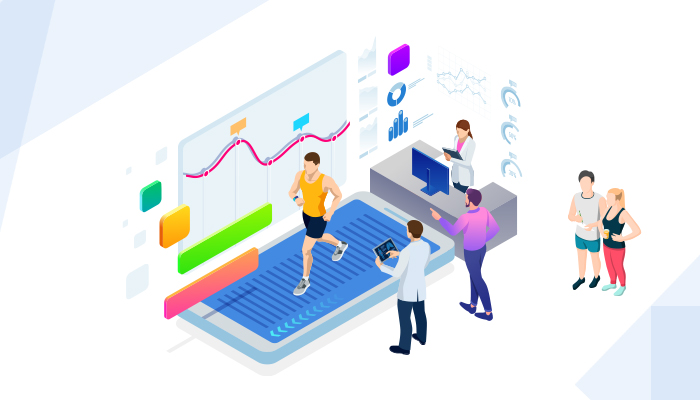
First, we started with systems that tracked our steps as we walked. Then, we moved on to systems that tracked our heart rate and our steps. Before we knew it, that technology was ancient and something even newer had emerged.
Recently, I signed up for a fitness band subscription service called WHOOP. Now, in an age where it seems like everyone has a fitness band or tracker of some kind, this doesn’t sound like a big deal. Until you learn what makes WHOOP stand out and makes it special.
According to an article by Medium, WHOOP is “a performance management system that includes hardware (the strap), software (a mobile and a web app), and a community. It doesn’t have a watch face (or a face of any kind), and it doesn’t track steps. What it does collect is 5 metrics 100x/second, 24 hours/day, 7 days/week in an effort to help you understand your body and unlock your performance potential. The system takes all of this data over days and weeks to determine how prepared you are for your optimal performance.”((“The reason I bought a WHOOP is not the reason I’m keeping it.” Accessed January 14, 2020.))
WHOOP is, at all times, tracking your heart rate, your “strain” level, your recovery rate and more. Every morning when I wake up, it calculates the amount of sleep I got, my heart rate variability, my resting heart rate, how many times I woke up during the night, what were the different phases of sleep I was in (REM, deep sleep, light sleep, etc) and it also asks me a series of questions to determine why my sleep was the way it was. It then uses this data to predict my day and gives me feedback on what I should and shouldn’t do.
If you google WHOOP, you would see articles and forum posts by people claiming that WHOOP helped them predict or prevent illness. Now, WHOOP is meant to be used by athletes, pro and amateur, who are looking to maximize their results. But what if there could be a way to use health data aggregation to help the general population?
[ Read More about POP Health: 3A’s of Healthcare IT ]
As WHOOP shows, knowing your body’s data can help you to perform better. But imagine if the same technology could be applied to a patient with diabetes. What if a tracker could use data analytics to tell them when their levels are not optimal? What if it could predict an issue before it happens? What if it could analyze their day to day activities and vitals and other pertinent data and then use it to help them perform optimally?
Or what if data analytics could be used to prevent mass scale illness? For instance, five kids, from three different schools, visited a pediatrician. All of them complaining about the same issue. This health data information that the doctor received would suggest that something is going about that is affecting children and is spreading far and wide.
Having this information would allow the doctor to be prepared and have enough resources to try and prevent or at least treat this disease. By nipping this at the bud, it could prevent more children from getting sick and will keep the general populations health safe.
Knowledge is power. It’s cliche, but it’s also true. Unlike what 1984 has told us, maybe the constant monitoring and aggregation of the populations health data is not a bad thing. After all, without a median, how are we supposed to know what is and isn’t out of normal range?
Despite what the first third of this article might make it seem like, this is not an advertisement for WHOOP. It’s not an advertisement for Garmin. Or a FitBit. Or an Apple Watch. Or any tracker. If you choose to get one and keep track of your health data, it would be a good choice, but not one that is necessary.
The point of this article is to bring awareness to the importance of aggregating health data. That is how we have discovered cures for diseases. That is how we have kept people safe from illnesses. That is how medicine has evolved.